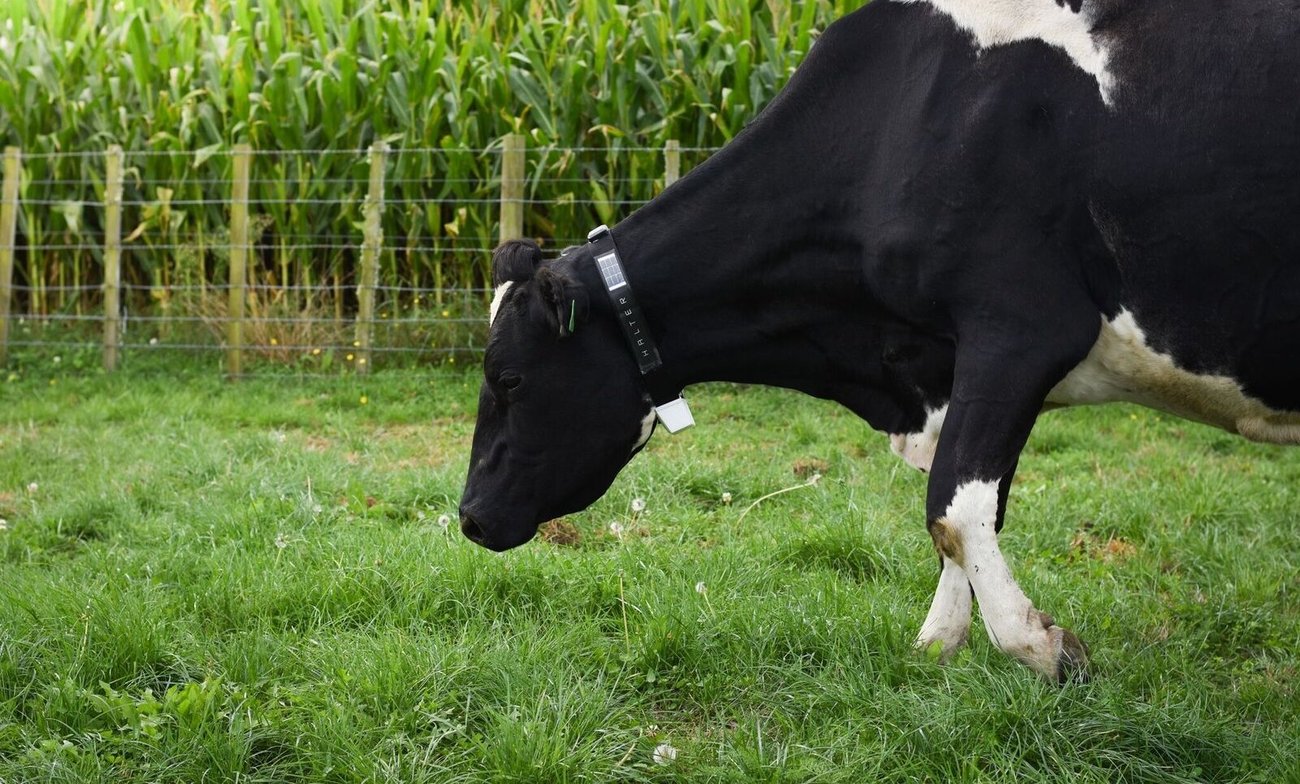New Zealand Innovation Awards: Innovation Systems & Performance Improvement, Halter

Described as an “Uber for cows” (as recently as last year, as a matter of fact), Halter is one of those innovations that just begs the question of why people didn’t think of it sooner.
In short, Halter makes collars that negate the need to manually herd cows – effectively turning them into automated “robo-cows” (but not zombie cows, thank goodness) that can be controlled from the comfort of a farmer’s living room.

Halter uses stimuli, such as sound, to provoke and manage cow movement. The collar’s hardware allows farmers to use software to remotely set geographic boundaries in the form of virtual fences, which the cows then can’t pass. In other words, it creates fences without the need to build expensive physical fences and removes the need for time-consuming herding. The collars also have GPS tracking and are solar-powered, so farmers can always know where each and every one of their cows are at all times.

That all sounds like something straight out of an Isaac Asimov, N. K. Jemisin or Arthur C. Clarke sci-fi novel. But the Auckland-based company has built some significant buzz. In March this year, Stuff said the company has “billion-dollar” potential. And at the ICE Angels Showcase in September last year – an event that brought together some of Australasia’s biggest investors – the company was one of 12 to pitch for investment, and won the audience favourite award.


Craig Piggott.
As of this year, Halter has raked in about $700,000 in government grants and equity funding. It has eight employees and it boasts Tuhua Ventures’ Mark Macleod-Smith as a investor-director, and none other than Rocket Lab’s Peter Beck – who also believes in Halter’s billion-dollar potential – as an independent director.

As the young founder Craig Piggott told Stuff: “New Zealand has been world leading in dairy for years because of our geography. We have had this head-start and now we just need to innovate to make sure we are always in front of other countries.”
And these kinds of simple but effective agritech solutions are exactly what the country needs.

Evaluator comments:




